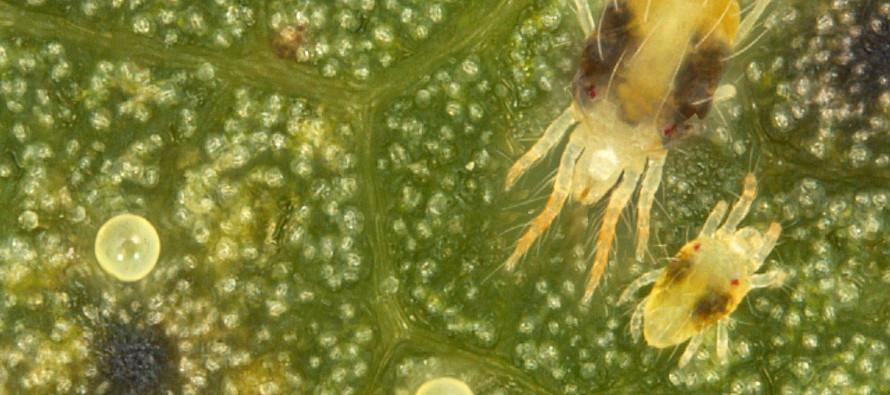Terminating Spider Mite Sprays in Mid-South Cotton

Related Articles
- Fertilizing Cotton with Poultry Litter 5
- Mississippi Cotton Insect Situation of 2010: A Look Back 3
- Bayer CropScience-O.A. Cleveland Weekly Cotton Commentary 0
Latest Tweets
There has always been a struggle with properly defining the correct cutoff for spider mites in cotton in the Mid-South region. For years we always loosely considered Node Above White Flower 5 (NAWF5 = Cutout) and 650 heat units the mark. This was based on best guess estimates considering the physiology of the cotton plant. With normal August and September temperatures in MS, this equate to roughly. The month of August only accumulates about 613 total heat units and September only 415 based on 30 year averages for central MS. This would mean we would have to carry cotton another 30 + days if it was cutting out on August 1st and much longer if it was mid August to early September.
A couple years ago LA, TN, AR, and MS did a joint research project to determine yield loss and cutoff points for spider mites in cotton. Our results indicated that we can likely terminated spider mites sprays much early than once thought without threat to yield loss. Over a 3 year period we infested mites at specific times in cotton and measured yield response. The graph below shows the yield results from several trial across the Mid-South region. The horizontal axis describes the release timing. Once released mites were allowed to remain on the plants until harvest. EXAMPLE: FF + 400 means that mites were infested 400 heat units past First Flower. The bottom line is the earlier mites are allowed to infest and go untreated in the growing season the more yield you stand to lose. FF + 1000 equals about NAWF 5 or cutout. This was the point that that we were no longer able to show an significant yield reduction due to spider mites. Keep in mind we only chose the trials where released populations actually spread and caused severe injury to the cotton. The trials below were irrigated trials. It is likely that dryland cotton may have had more severe yield loss and needs to be protected for a longer period. This is why we added 350 heat units to the point where no more yield loss was observed, to represent fields or situations that we could not account for. The bottom line is based on the data, we feel comfortable terminating mite applications around 300-350 heat units past NAWF5. This would mean you could basically quit treating mites when you terminate tarnished plant bug sprays.
For more information about this research project check out the following publication:
YIELD LOSS POTENTIAL OF TWOSPOTTED SPIDER MITES IN MIDSOUTH COTTON





Let me tell You a sad story ! There are no comments yet, but You can be first one to comment this article.
Write a comment